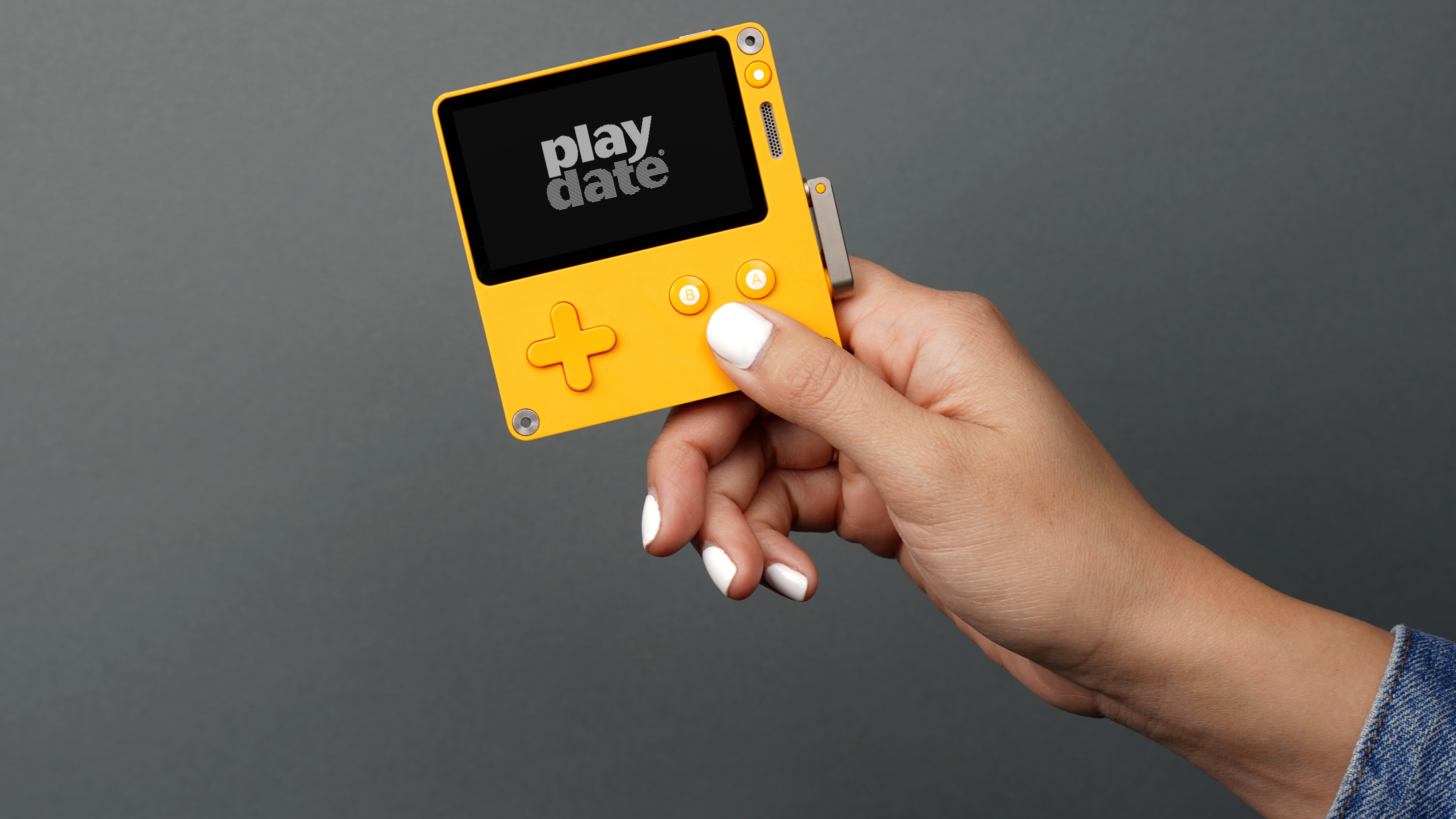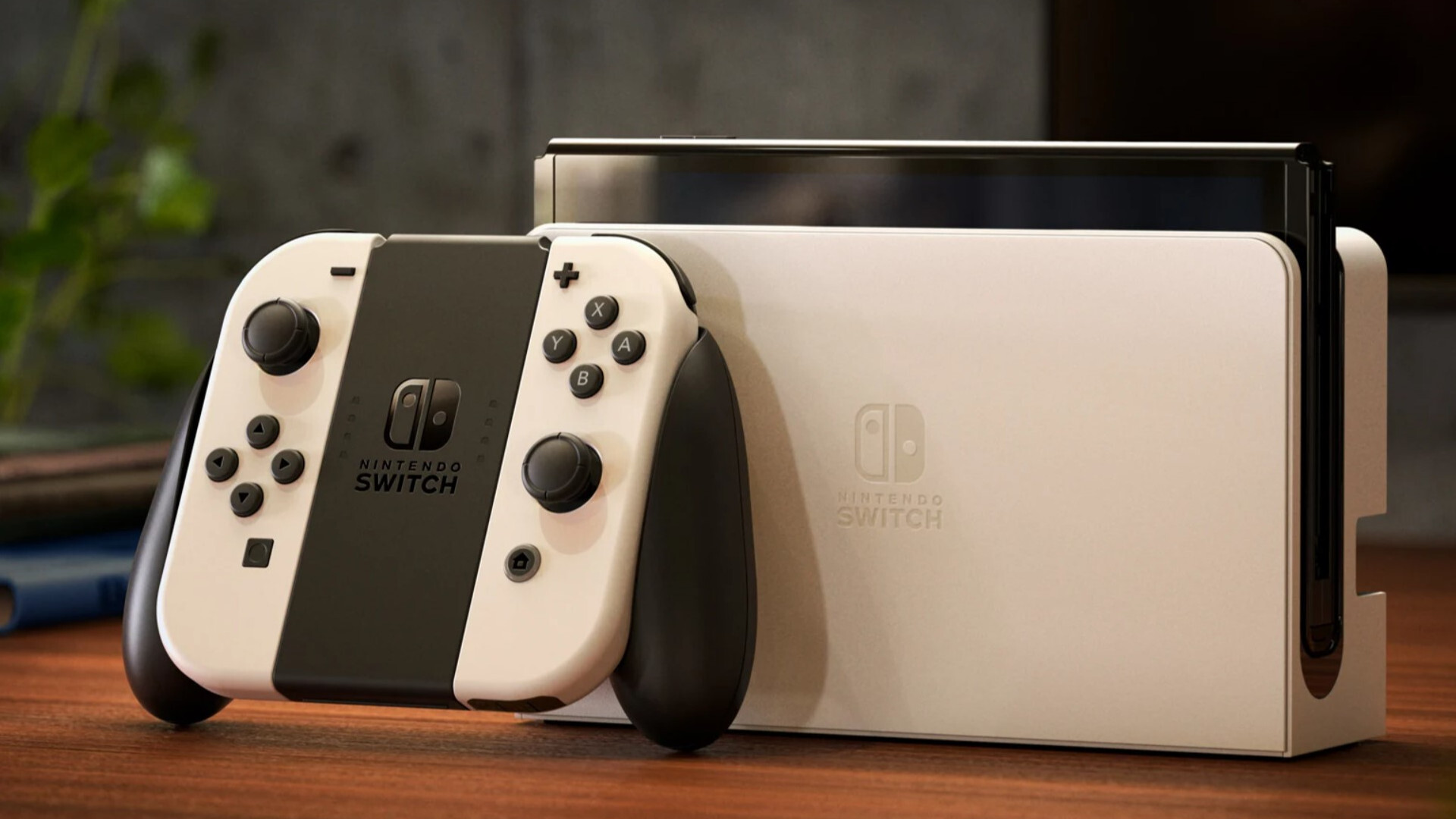Why I’m buying a Playdate over the Nintendo Switch OLED or Steam Deck
Opinion: Innovation beats iteration every time

I love handheld gaming. As much as I have to concede the superior picture quality of a good gaming TV and high-powered console, I almost always find myself lapsing into a more casual setup – lying on the sofa, tucked up in bed, or lounging on a windowsill like a Jane Austen heroine with a penchant for roguelikes and action RPGs.
This penchant for the casual has meant that the upcoming Playdate handheld console has fully captured my attention, offering a sleek, modernized take on the GameBoy with a bright yellow aesthetic, a host of indie 1-Bit games, and a bewildering crank mechanism like nothing else on the market. There’s even an optional speaker accessory with a pencil holder, turning the Playdate into a cute and quirky deskside companion in a way that bulkier gaming machines simply couldn’t achieve.
But the main draw of Playdate is in what it acts as a platform for, with a wave of custom-made indie games having been created for the unique handheld, acting as a palette cleanser in a sea of mainstream titles and AAA franchises with near-identical controllers or mouse-and-keyboard inputs. Ever wanted to play a zine? That’s what the Playdate feels like.
However, Playdate is having to share the limelight with a number of other handheld console announcements this year – all of which are sure to get more attention and more gamers’ cash.
The Nintendo Switch OLED is set to bring a serious picture upgrade to the hybrid console when it releases in October this year, improving its handheld experience with a larger seven-inch OLED panel and more stable kickstand, even if there aren’t any upgrades for those who tend to keep their Switch docked for use with their television.
Valve's Steam Deck begins shipping in December, with a similar form factor to the Switch, but with much more power and the vast expanses of Steam’s PC game marketplace to recommend it.
Both of these consoles are exciting in their own right, and the key question for most handheld gamers in the coming year will be which to opt for. In my case, though, only the Playdate is likely to get my cash.
Get daily insight, inspiration and deals in your inbox
Sign up for breaking news, reviews, opinion, top tech deals, and more.
It's a date

I’ve had a Nintendo Switch for the past two years, and as keen as I’d be to improve the handheld experience – indeed, that’s what I begged Nintendo for earlier in the year – the chance for a wholly different console with its own unique inputs and suite of exclusive indie games is too good to pass up.
These indie games will certainly be relatively short affairs – no 100-hour RPGs here – but when the publisher behind Firewatch and Untitled Goose Game makes a gaming console, you pay attention.
Panic has a reputation for putting out both quality narratives and brilliant silliness, and the upcoming season of Playdate games (with two releasing each week in the two months after the console launch) looks set to continue that legacy. It even includes a title called Mars After Midnight from the developer behind Return of the Obra Dinn, a critically-acclaimed 1-bit mystery game, so it’s clear this isn’t just a platform for first-draft or otherwise-discarded game ideas.
Crucially, though, the PlayDate console will finally be available to pre-order from July 29 – retailing for $179 (around £125 / AU$230) at launch. The first 20,000 preorders should ship in late 2021, with remaining orders being fulfilled in 2022.
That’s only slightly less than the price of a Nintendo Switch Lite, but around half what you’d pay for the Nintendo Switch OLED (which will retail for $349.99 / £309.99 / AU$539) and far less than any of the upcoming Steam Deck models (which start at $399 / £349 for the basic version and cap at almost twice that amount).
Given I already have a mainline Nintendo Switch, the Playdate allows me to get a brand new, secondary console for half the price of a mid-cycle Switch OLED upgrade. And, as I’m not much of a PC gamer, I don’t have a bulging Steam library just waiting to be ported onto a portable device. I would be starting effectively from scratch, and no doubt paying through the nose to get the Steam Deck hardware as well as a smattering of quality PC games. Not so with the Playdate, which bundles its games in for free with that $179 price tag.
It’s easy to dismiss the Playdate as a hipster console – a quirky, overly-yellow side piece that can’t offer the vast capabilities of more mainline gaming machines. But if you’re after something different, and don’t feel the urgency to buy a premium Switch or portable gaming PC – especially if you have an existing Switch model or desktop gaming PC in your life already – it could offer a refreshing tonic to your regular gaming staples. It’s certainly the only console I’m excited to buy in the coming year.
- Nintendo Switch OLED pre-order: how to get the upgraded console
Henry is a freelance technology journalist, and former News & Features Editor for TechRadar, where he specialized in home entertainment gadgets such as TVs, projectors, soundbars, and smart speakers. Other bylines include Edge, T3, iMore, GamesRadar, NBC News, Healthline, and The Times.
